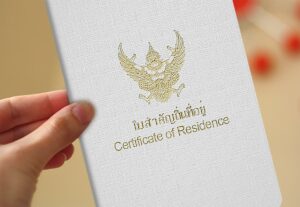Last Will & Testament in Thailand. While it’s not always a pleasant topic, having a last will and testament (often called a “will”) in Thailand is crucial for ensuring your assets are distributed according to your wishes after your passing. This is especially important for foreigners who own property or have other holdings in Thailand.
Why Do You Need a Thai Will?
Even though foreign wills are generally enforceable in Thailand, the process can be complex and time-consuming for your loved ones. Here’s why having a separate Thai will is highly recommended:
- Simplified Process: A Thai will avoids the need for translation, notarization, and approval of foreign documents, streamlining the inheritance process for your beneficiaries.
- Clarity of Intent: A Thai will drafted according to Thai law ensures your wishes are interpreted correctly, minimizing the risk of disputes.
- Peace of Mind: Knowing your affairs are in order provides peace of mind for you and your family during a difficult time.
Types of Wills in Thailand
Thai law allows for two primary forms of wills:
-
Written Will with Witnesses: This is the most common type. The will must be written, dated, and signed by you in front of at least two witnesses who then sign a statement confirming they witnessed your signature.
-
Holographic Will: This is entirely handwritten, dated, and signed by you. There are no witnesses required, but it can be more easily challenged in court if its authenticity is questioned.
What to Include in Your Thai Will
Your Thai will should clearly state your wishes regarding:
- Beneficiaries: Who will inherit your assets (property, bank accounts, vehicles, etc.)
- Executors: Who will be responsible for managing your estate and distributing your assets
- Guardianship: If you have minor children, who will become their legal guardian
- Specific Bequests: Any specific gifts or instructions you have for certain beneficiaries
- Funeral Arrangements: (Optional) You can include your preferences for your funeral
Seeking Legal Help
While there are templates available online, it’s strongly advised to consult with a lawyer experienced in Thai inheritance law. They can ensure your will is drafted correctly, complies with Thai legal requirements, and effectively conveys your wishes.
Additional Considerations
- Thai law does not require probate for wills, but a lawyer can still be helpful in navigating the inheritance process.
- There is no inheritance tax in Thailand, but beneficiaries may be liable for capital gains tax when selling inherited assets.
By taking the time to create a valid Thai will, you can ensure your loved ones inherit your assets smoothly and according to your wishes, offering them some comfort during a difficult time.
You might also enjoy

Thai Business Partnership
A Thai business partnership is one of the most commonly

Thailand Permanent Residency
Thailand Permanent Residency (PR) is a highly sought-after immigration status

Child Custody in Thailand
Child custody in Thailand is governed by the Civil and


